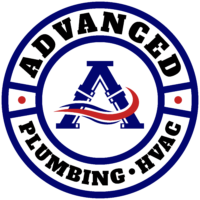
When it’s time to replace your old water heater, many homeowners are choosing tankless water heater installation as a modern, efficient upgrade. Tankless systems provide hot water on demand, cut down on wasted energy, and can even last longer than traditional tank models. But before you make the switch, it’s helpful to understand the benefits, the potential costs, and what to expect during installation.
The Benefits of Tankless Water Heaters
Endless Hot Water
Unlike storage tank units that eventually run cold, tankless water heaters heat water as it passes through the system. That means your family can enjoy back-to-back showers or run the dishwasher without waiting for the tank to refill.
Energy Efficiency
Traditional heaters keep water hot 24/7, which wastes energy. Tankless units only operate when you need hot water, reducing energy bills and helping you lower your home’s carbon footprint.
Space-Saving Design
Tankless water heaters are compact and usually wall-mounted, freeing up space in basements, garages, or utility closets. This makes them ideal for smaller homes or households that need extra storage.
Long Lifespan
With regular maintenance, tankless systems often last 20 years or more, even outperforming most storage tank units that average about 10–15 years.
The Costs of Tankless Water Heater Installation
Upfront Investment
Tankless units generally cost more than standard water heaters. The price for the unit itself often ranges higher, and installation can involve additional expenses if your home needs upgrades to gas lines, venting, or electrical systems.
Long-Term Savings
Despite the higher initial price, tankless water heaters can save you money over time. Lower utility bills, fewer repairs, and a longer lifespan help offset the upfront investment. Many homeowners view the switch as a cost-effective decision over the life of the unit.
Factors That Affect Price
The overall cost depends on:
- The size and capacity of the system needed for your household
- Whether your utilities (gas or electric) need modifications
- Local labor rates and building code requirements
- Any additional features, such as smart controls or recirculation systems
What to Expect During Installation
Installing a tankless water heater isn’t just a swap-out job—it’s a process that ensures the system is set up for safety and efficiency. Here’s what usually happens:
- Evaluation of Home Needs: A professional will assess your hot water demand, utility setup, and current system to determine the right size and model.
- Preparing the Utilities: If necessary, upgrades may be made to gas lines, electrical systems, or venting to meet the requirements of the new tankless system.
- Mounting the Unit: Tankless water heaters are typically wall-mounted, saving floor space. The installation team will secure the unit and connect it to water, power, and venting.
- System Testing: Once the unit is installed, the system is tested for leaks, efficiency, and proper temperature output. Adjustments are made to optimize performance.
Is a Tankless Water Heater Right for You?
Tankless water heaters are low-maintenance, but they aren’t maintenance-free. Annual flushing helps prevent mineral buildup, especially in areas with hard water. Filters should also be cleaned or replaced to keep the system running smoothly. Regular care ensures your system lasts for decades.
For many homeowners, the upgrade to tankless makes sense, especially if they want unlimited hot water, improved efficiency, and longer-lasting equipment. However, the decision depends on your budget, household size, and existing home infrastructure.
Need Tankless Water Heater Installation? We Can Help
Making the switch to a tankless water heater is an investment in comfort, efficiency, and long-term value. With the right system and professional installation, you’ll enjoy endless hot water, lower energy bills, and peace of mind for years to come.
For expert guidance and dependable tankless water heater installation, contact Advanced Plumbing & HVAC. Our team can help you choose the right system, handle the installation with precision, and ensure your home’s hot water needs are fully met.

